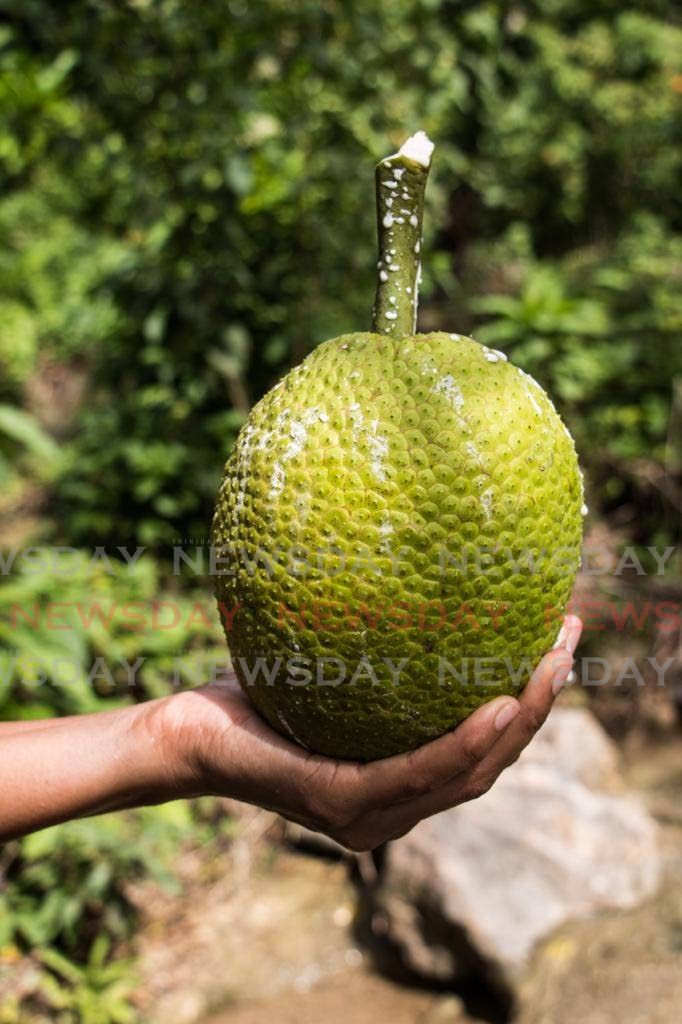Breadfruit doctorate on the menu

Caribbean people love eating breadfruit – roasted, fried, in oildown, cou-cou, or pie. But do we know how it spread through the Caribbean after its initial arrival?
The University of Warwick’s Department of History, in collaboration with the Royal Botanic Gardens at Kew, London, is offering researchers access to its archives and resources to research this topic as a fully-funded PhD studentship. Titled Creolising Caribbean Foodways, it will begin in October 2024, through the Midlands4Cities Doctoral Training Partnership.
The description of the project on the University of Warwick’s website said, working with the Royal Botanic Gardens, this PhD project explores how and why breadfruit was adopted and adapted to Caribbean needs – how, in short, it was creolised.
“The journey of the breadfruit tree (
Artocarpus altilis) from Oceania to the Caribbean in the 1790s – featuring Captain Bligh and the mutiny on the Bounty – is a well-known story encompassing global scientific networks, economic botany and an imperial project to feed enslaved populations.
“At first, breadfruit was not a success; enslaved people were said to reject its taste. Yet after slavery’s abolition in the British Caribbean in the 1830s, breadfruit became increasingly significant in local foodways. It is now an iconic food deeply embedded in regional cuisines. This project explores this little-known Caribbean history.”
The website said the adaption of breadfruit to local needs occurred against the backdrop of wider developments, including the decline of the export-orientated plantation system; the establishment of local peasantries; efforts to modernise Caribbean agriculture; decolonisation; and the presence of new populations arriving with indentureship, especially in Trinidad and British Guiana.
It said studying the history of breadfruit at different scales, including via particular colonies, specific sites of cultivation, and different uses, reveals the primary and secondary routes through which it spread.
“Breadfruit now has a significant cultural presence, as an integral part of ‘national cuisines’ that emerged in the 20th century and an enduring symbol of the historical injustice of slavery. Breadfruit, in short, can tell us about the Caribbean’s past, its present, and perhaps its future.”
The student will be supervised by Prof David Lambert and Prof Rebecca Earle at the Warwick’s Department of History, and at Kew by Caroline Cornish and Mark Nesbitt.
Newsday e-mailed Lambert, who said there has been a huge amount of interest from the Caribbean, as well as from people from the region, or of Caribbean descent, in the UK.
“This should allow us to select the best applicant from a really strong shortlist. As the advert notes, familiarity with the history and languages of the Caribbean is an advantage. Using the networks of the University of Warwick and Kew Gardens, we've worked hard to ensure that this studentship has been advertised very widely. “
He said the project came about as a collaboration between Kew Gardens and the university.
“We knew we wanted to work together and in our initial discussions, we realised that the history of breadfruit was understudied, despite its reputation and present-day importance. Kew Gardens have extensive records and specimens that can be used here, as well as international links to institutions in the Caribbean and beyond. This also fits well with our work at Warwick, where we do a lot on the histories and cultures of the Caribbean and its peoples, especially through our globally-recognised Centre for Caribbean Studies, which I am part of.
“Furthermore, the other academic supervisor, Prof Rebecca Earle, is a worldwide expert on food, which fits perfectly with the project. For all of us, this project offers a lot of opportunity to draw on the knowledge and expertise of, and engage with, the people of the Caribbean and its diasporas.”
He said other food crops in the Caribbean had been studied, but breadfruit was chosen for this particular project because it has such a prominent status in many national cuisines in the region, despite its early rejection by enslaved people of African descent.
“Its introduction to the region from the Pacific also illustrates the global nature of food cultures. At the same time, the project is concerned with other crops that were grown alongside or consumed with breadfruit, so breadfruit can serve as an entry-point to look at other foodstuffs, broader histories of farming and so on.”
Suggested research questions for applicants to study could include: How and through what means did breadfruit trees spread across the Caribbean in the 19th and 20th centuries? How widely and how were their fruit consumed? Did the breadfruit’s use as a food connect to its commercial utility as a source of fibre, timber, or adhesives? What discourses about breadfruit circulated, and with what consequences? Why did breadfruit become of interest, at different times, to colonial authorities, scientists, post-colonial governments, international bodies, and nationalists?
The university said the research rests on the exceptional print and manuscript collections at Kew Gardens whose herbarium and the Economic Botany Collection also hold many relevant specimens. Further sources are held at research centres such as the Breadfruit Institute at the National Tropical Botanic Garden, Hawaii.
The project will also use other sources including botanical writing, cookbooks, travel and missionary accounts, and legal and tax records. The project is open to a range of interdisciplinary approaches, including those associated with "critical plant studies," more-than-human approaches, food studies and the environmental humanities. Skill in Spanish, French, or Dutch might enable comparative approaches to the spread of breadfruit across the Caribbean.
The studentship covers full payment of tuition fees for four years full-time, plus an annual stipend at £18,622 per annum for living costs. Additional funding opportunities include a research and development fund to support primary research activities, an engagement fund to let students undertake placements and other professional development activity, and a cohort development fund which supports groups of Midlands4Cities students to design training, development and research activities.


Comments
"Breadfruit doctorate on the menu"